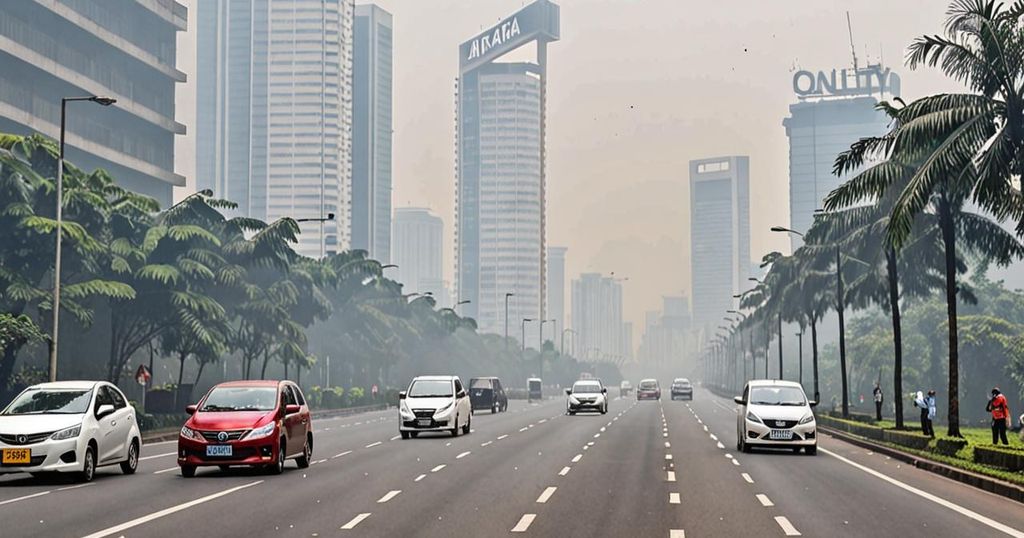The capital city of Indonesia, Jakarta, is currently facing a significant environmental crisis due to dangerously high levels of air pollution. The air quality index, based on PM2.5 concentrations, has reached 175, which is 18 times higher than the World Health Organization’s recommended guidelines, making Jakarta the most polluted city in the world.
As a result of this alarming situation, the air quality monitoring website, IQ Air, has issued warnings advising residents to refrain from outdoor activities and to wear masks when going outside. Furthermore, it is recommended to keep windows closed to prevent the entry of polluted outdoor air into homes.
The severe levels of pollution pose serious health risks, particularly for vulnerable groups such as children, the elderly, and those with respiratory conditions. Additionally, the impact extends beyond public health to vegetation and environmental aesthetics.
In response to this critical issue, the Acting Governor of DKI Jakarta, Heru Budi Hartono, has taken decisive action by establishing the Air Pollution Control Task Force through Governor’s Decree No. 593 of 2023. The task force is responsible for implementing urgent measures to address the alarming levels of air pollution in Jakarta.
The scope of the task force’s work includes developing Standard Operating Procedures for air pollution management, monitoring and evaluating air quality, and assessing the health impacts of pollution. Additionally, measures such as controlling pollution from industrial activities, enforcing vehicle emission testing, and promoting environmentally friendly transportation options are being prioritized.
To further mitigate pollution, the task force aims to prevent and address disturbances from both mobile and stationary pollution sources and manage emergency situations. Enforcing licensing regulations related to air pollution and initiating compliance measures against violators are also part of the task force’s agenda.
This severity of the air pollution crisis is also reflected in the global rankings, with Medan, Indonesia, closely following as the second most polluted city worldwide. This data underscores the urgent need for comprehensive and sustained interventions to combat the environmental challenges faced by these cities.
It is imperative for government authorities, environmental agencies, and the public to work together collaboratively to address the underlying causes of air pollution and to implement effective solutions. Through a collective effort and active participation from all stakeholders, there is hope for the restoration of clean and breathable air in these urban centers.
Given the detrimental impacts on public health and the environment, it is crucial for policymakers to prioritize resource allocation and implement effective strategies to combat air pollution. The urgency of this matter cannot be overstated, and immediate action is essential to safeguard the well-being of the population and the preservation of the environment.

Leave a Reply